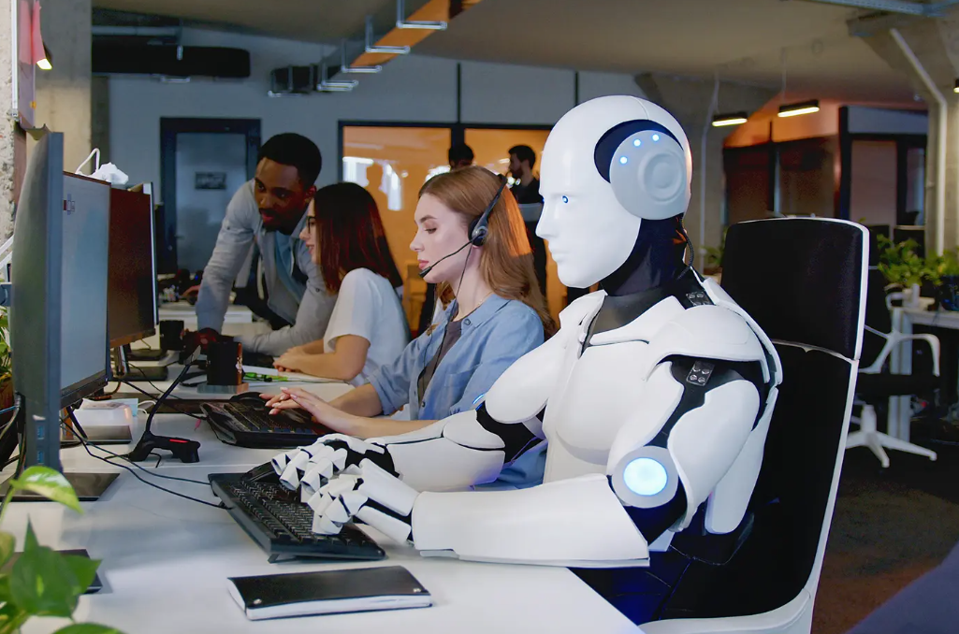The Future of Work: A Glimpse into What Lies Ahead

The future of work is rapidly evolving, driven by technological advancements, shifting societal norms, and the ongoing effects of global events. As we look forward, several key trends and developments are set to shape the way we work, live, and interact. This article explores these changes and what they mean for employees, employers, and the broader economy.
1. Remote and Hybrid Work Models
The COVID-19 pandemic accelerated the adoption of remote work, proving that many jobs can be done from anywhere with a stable internet connection. As a result, remote and hybrid work models are likely to become permanent fixtures. Companies increasingly offer flexible work arrangements, allowing employees to split their time between home and the office. This flexibility improves work-life balance and widens the talent pool, enabling businesses to hire from a global workforce.
2. Digital Transformation and Automation
Advancements in artificial intelligence (AI), machine learning, and robotics are transforming industries. Routine and repetitive tasks are being automated, allowing employees to focus on more complex and creative aspects of their jobs. AI-powered tools can enhance productivity, provide data-driven insights, and improve decision-making processes. However, this shift also necessitates continuous learning and upskilling to ensure that the workforce remains relevant in an increasingly automated world.
3. The Gig Economy and Freelancing
The gig economy, characterised by short-term contracts and freelance work, is expanding. Platforms like Upwork, Fiverr, and TaskRabbit enable individuals to offer their skills and services to a global audience. This model provides flexibility and autonomy, appealing to those who prefer varied and project-based work. However, it also raises questions about job security, benefits, and workers’ rights, prompting discussions about the need for regulatory frameworks to protect gig workers.
4. Wellness and Mental Health Prioritization
Employee wellness and mental health are becoming critical components of a productive workforce. Employers increasingly recognise the importance of supporting their employees’ mental well-being through initiatives such as flexible working hours, mental health days, and access to counselling services. Creating a supportive work environment enhances employee satisfaction, boosts productivity, and reduces turnover.
5. Diversity, Equity, and Inclusion (DEI)
Diversity, equity, and inclusion are becoming central to organisational strategies. Companies strive to create inclusive workplaces where all employees feel valued and respected. This involves implementing unbiased hiring practices, offering diversity training, and fostering a culture of inclusion. A diverse workforce brings varied perspectives and ideas, driving innovation and better decision-making.
6. Reskilling and Lifelong Learning
The rapid pace of technological change necessitates continuous learning and reskilling. The half-life of skills is shortening, meaning that what was relevant a few years ago may no longer be applicable. Employers invest in training programs to help employees adapt to new tools and methodologies. Simultaneously, individuals are taking proactive steps to acquire new skills through online courses, certifications, and higher education.
7. Sustainable Work Practices
Sustainability is becoming a key consideration in business operations. Companies are adopting eco-friendly practices, from reducing carbon footprints to promoting remote work to decrease commuting emissions. Additionally, a growing emphasis is on corporate social responsibility (CSR), where businesses contribute positively to society and the environment.
8. Enhanced Collaboration Tools
The future workplace will be characterised by sophisticated collaboration tools facilitating seamless communication and teamwork. Platforms like Slack, Microsoft Teams, and Zoom have already become integral to remote work. Future developments will likely include more immersive experiences, such as virtual reality (VR) meetings and augmented reality (AR) collaboration, making remote interactions more engaging and effective.
9. Changing Office Spaces
The traditional office space is being reimagined to support hybrid work models. Offices are becoming more flexible, with hot-desking, collaborative zones, and quiet areas to cater to different work styles. This shift aims to maximise productivity and foster a sense of community when employees are on-site.
10. Work-Life Integration
The concept of work-life balance is evolving into work-life integration. With the boundaries between work and personal life becoming increasingly blurred, employees seek ways to integrate their professional and personal responsibilities seamlessly. This shift requires employers to adopt policies supporting this integration, such as flexible schedules and recognising employees’ diverse needs.
Conclusion
The future of work is dynamic and multifaceted, driven by technological advancements, changing societal expectations, and global trends. While these changes present challenges, they also offer opportunities for innovation, growth, and improved quality of life. By embracing flexibility, investing in employee well-being, and fostering a culture of continuous learning, businesses can navigate the evolving landscape and thrive in the future of work.